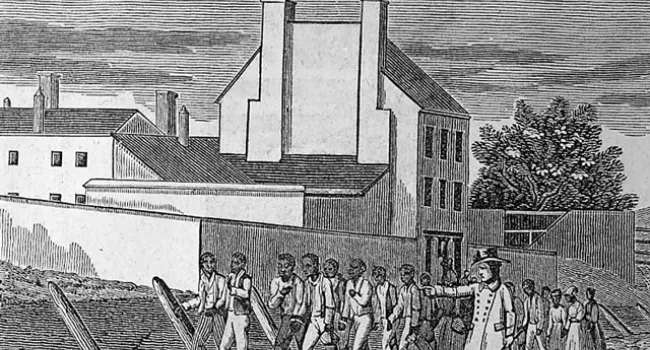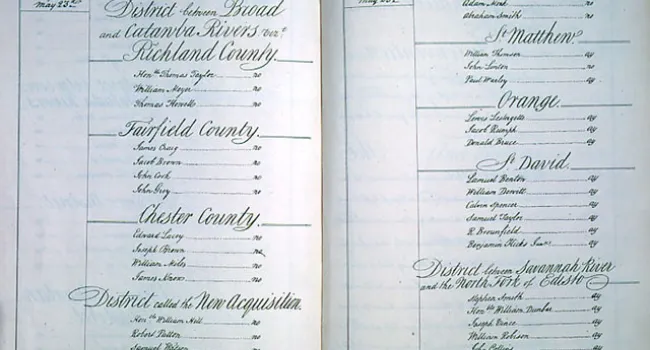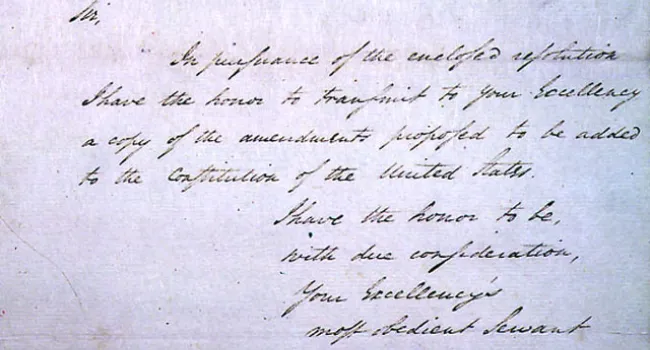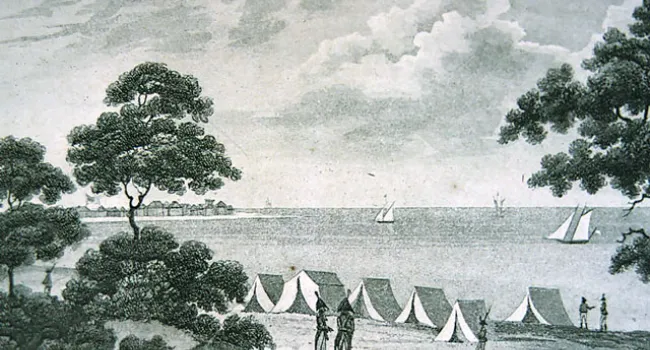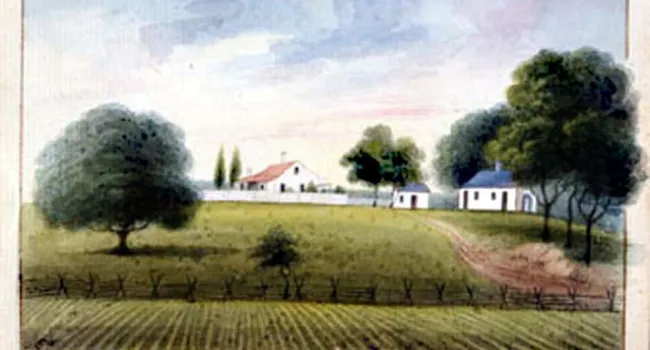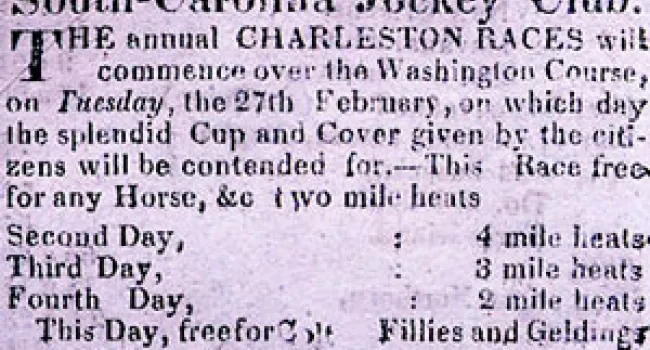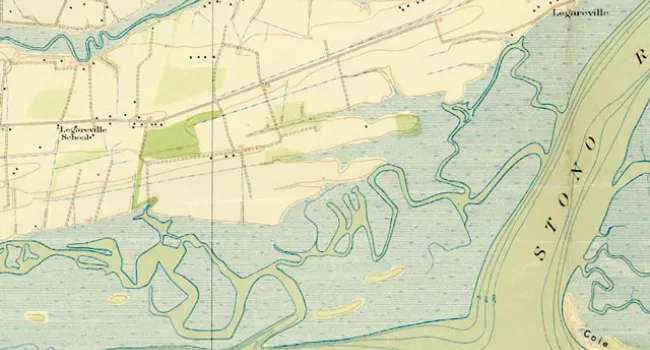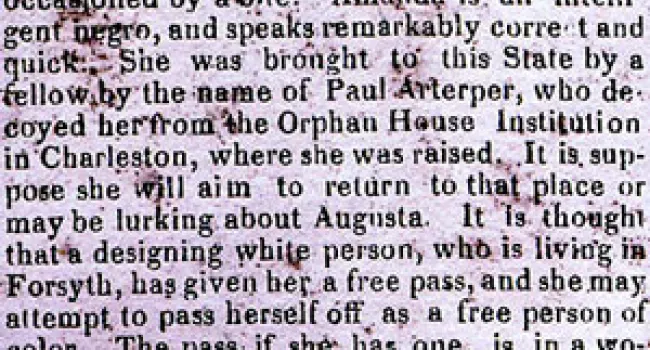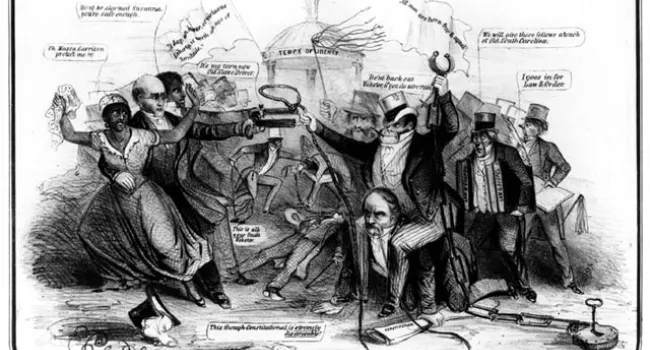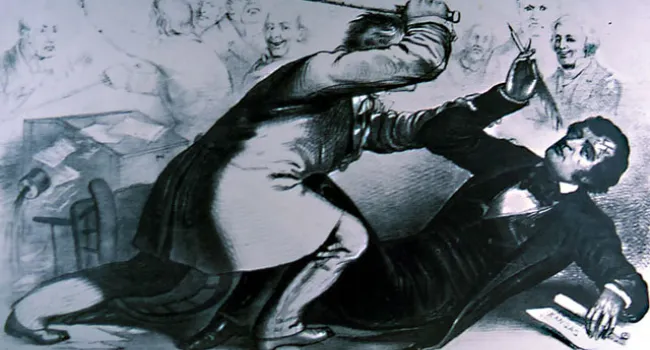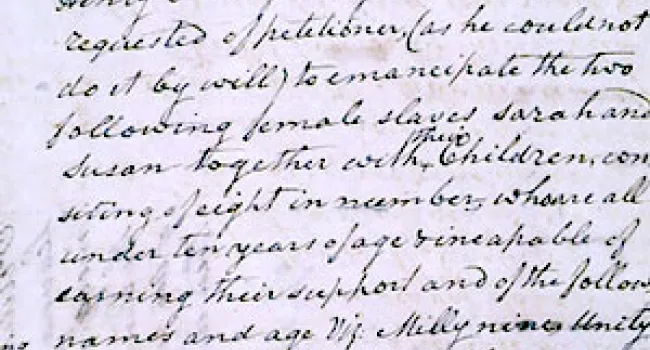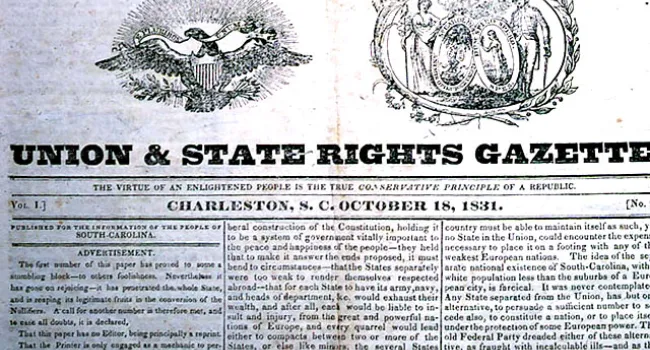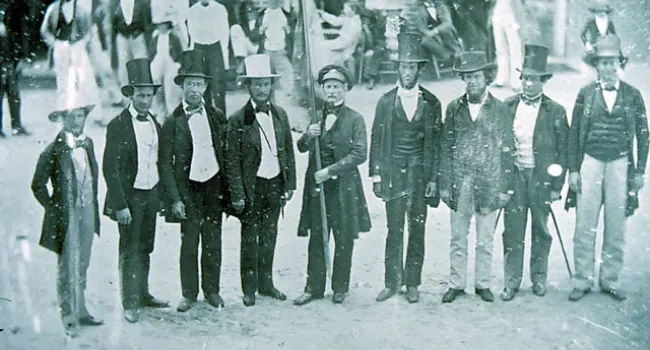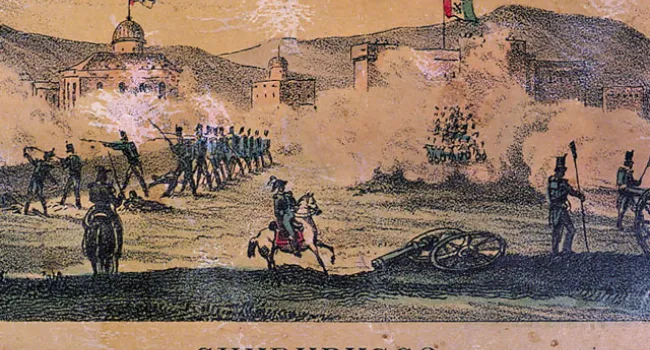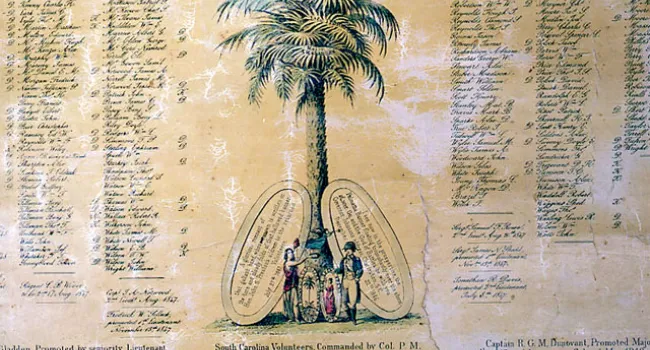
The costs of the Revolutionary War remained a difficult problem for the new nation years after the victories on the battlefield. Many soldiers, both those in the continental line and those in state militia units, were paid with notes, or promises to pay. A number of states also promised their soldiers bonuses in the future for reenlisting or substituted land warrants--promises of a fixed amount of acreage on the frontier in addition to, or instead of, pay. Pay records such as this one were therefore important documents for revolutionary soldiers; thirty years later they would become important again in proving a soldier's eligibility for a Revolutionary War Pension from the Federal Government. This pay voucher, signed by General Thomas Sumter (the "Fighting Gamecock"; see Thomas Sumter), also illustrates how rapidly a young man like Charles S. Myddelton of Sumter could move up in the ranks during war.
Courtesy of the Sumter County Museum Archives.

